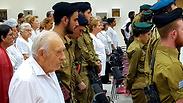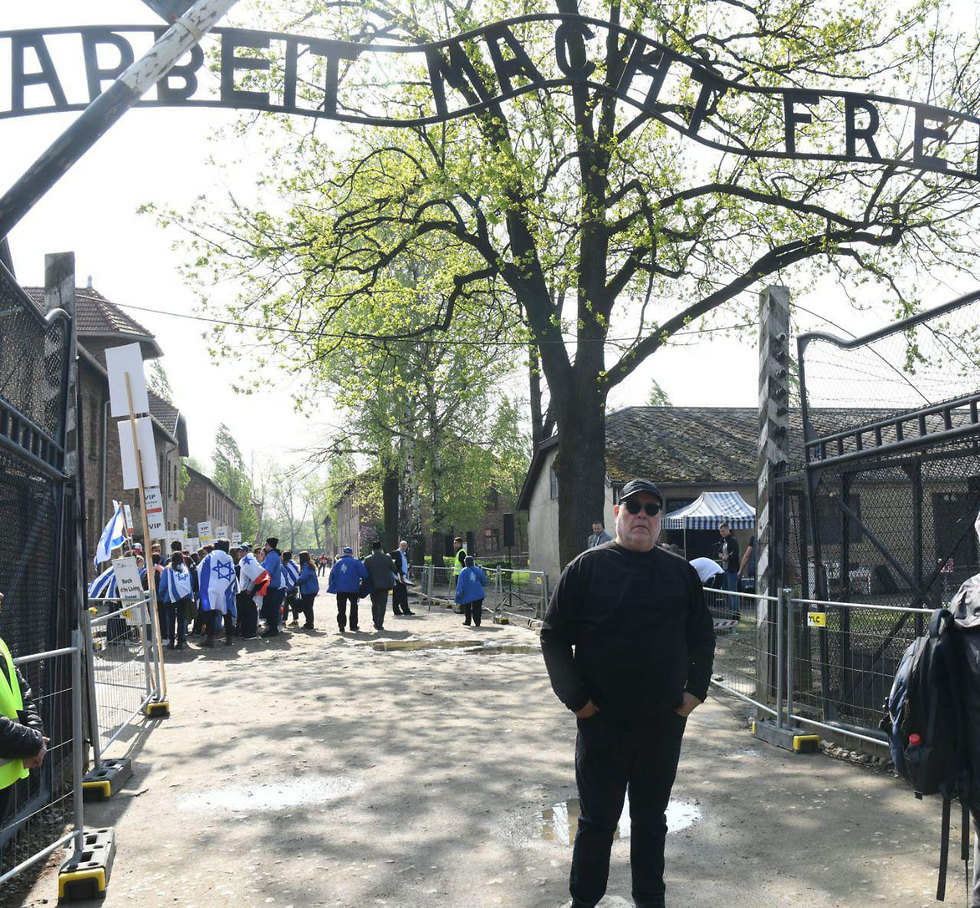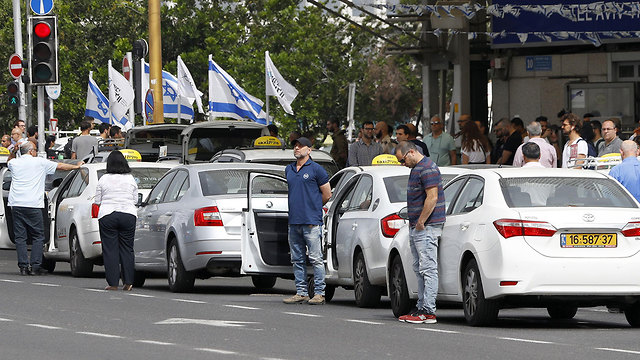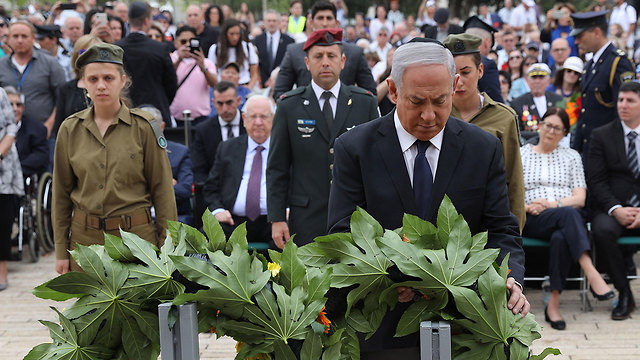
Pedestrians stood in place, buses stopped on busy streets and cars pulled over on major highways - their drivers standing on the roads with their heads bowed.
In homes and businesses, people stopped what they were doing to pay homage to the victims of the Nazi genocide, in which a third of world Jewry was annihilated.
A wreath-laying ceremony at the Yad Vashem memorial followed, with Israeli leaders - including Prime Minister Benjamin Netanyahu and President Reuven Rivlin - as well as Holocaust survivors in attendance. Other ceremonies, prayers and musical performances took place in schools, community centers and army bases around the country.
The names of those who perished in the genocide were to be read aloud in the Knesset throughout the day.
Rivlin, who also spoke at the “Every Person Has a Name” ceremony in the parliament and read the names of his ill wife's relatives, murdered by the Nazis.
“Every year we come here to Yom HaShoah and read the names of Holocaust victims," Rivlin said. "But there are so many names that we will never know, despite the never ending efforts to find them. My wife's Nechama's cousins, children, infants, babies who left no name behind. No-one knows their names. They were here, and now have gone. May their memory be a blessing.”
The annual remembrance is one of the most solemn on Israel's calendar. Restaurants, cafes and places of entertainment shut down, and radio and TV programming are dedicated almost exclusively to documentaries about the Holocaust, interviews with survivors and somber music. The Israeli flag flew at half-staff.
The Holocaust runs deep in Israeli public consciousness. The state was established in 1948, three years after the genocide ended with the conclusion of World War II, as a place of refuge for Jews across the world. Hundreds of thousands of Holocaust survivors who had lost their families fled there and made it their home.
According to the Hebrew calendar, Holocaust Remembrance Day marks the anniversary of the 1943 Warsaw Ghetto uprising - the most significant, yet doomed, act of Jewish resistance during the Holocaust that helped shape Israel's national psyche, symbolizing strength and the struggle for freedom in the face of annihilation.

President Reuven Rivlin touched on the surging anti-Semitism in Europe, which he said "is once again rearing its head, fueled by waves of immigration, economic crises and disillusionment with the political establishment."
In veiled criticism of Prime Minister Netanyahu, he urged the government to rethink its cultivation of alliances with nationalist parties in Europe who have anti-Semitic pasts.
Netanyahu has come under fire for embracing a string of eastern European leaders who have lavished Israel with political support while promoting a distorted image of the Holocaust and sought to diminish their culpability while making heroes out of anti-Soviet nationalists involved in the mass killing of Jews.

















